- Home
- Andrew McGahan
The Ocean of the Dead: Ship Kings 4 Page 23
The Ocean of the Dead: Ship Kings 4 Read online
Page 23
‘But such children are never born on New Island, or in the Twin Isles. Why are they born only to the Ship Kings?’
‘For one, births like mine are very rare. One in a thousand thousands, I once heard a doctor say. Great Island, as the most populous of the Isles, is thus the most likely place for such an oddity to occur. But do not be so sure no one like me has ever been born on the other Isles. After all, those lands have not the tradition of scapegoats, and so have no use for the freakish. Say what you will of the Ship Kings, at least they value their unfortunates. A child such as I born on New Island would not be treasured; it would be smothered by the midwives and buried in haste, a secret shame never to be mentioned.’
Dow said nothing; it was a truth he could not argue.
‘But all this is by the by,’ Uyal went on. ‘I mention it only to assure you that I play no games when I give you these warnings. I do not know detail by detail what will happen – I only see the greater patterns, and the dead ends into which all of us can fall, if the wrong choices are made by some. You are not the only one whose choices matter – far from it – but you will face the starkest and most fatal decision of us all. Such is your fortune.’
The resentment bit again, and half in mockery Dow asked, ‘And your own fortune, Uyal? What do you know of that?’
The child voice was wistful. ‘What you really ask is if I have foreseen the manner of my own death? But there I am blind. It seems that prophets are always doomed to be so, ignorant of their own passing – or perhaps the better word is blessed. Oh, I can read something of my future by association. As a passenger of this fleet, for instance. If the ships sink, then surely I too will drown. But what particular fate awaits me, that I don’t know.’
‘But this decision you say I will face, what—’
‘Hush now,’ Uyal interrupted. ‘The time for that is past. Listen and watch. It has begun, and must be played out now to the end.’
Dow stared in surprise; and at the same moment a hoarse cry, high with fear, came from across the water.
The Chloe.
He whirled, forgetting everything, to gaze across to his ship. In the lamp glow it was hard to see, but it seemed that the Chloe’s crew was rushing back and forth along the rails, some pointing down to the sea, others hurling objects into the water – mines! A string of them erupted beneath the surface, whump, whump, whump, and in the orange flare the Chloe’s hull was lit starkly. Dow saw a horrible thing: emerging from the sea and swarming up the side were dark shapes by the dozen.
The Sunken!
The awful scene was hidden instantly as the flare-light died, but Dow’s first wild thought was that humans were rising from the sea, and that Magliore was right after all: the drowned Dead had come to devour the living. But no, even in that one glimpse he had seen enough to recognise that the shapes were not human. They were reminiscent of humans no doubt, of similar size, and with limbs that uncannily echoed a man’s, but in true shape and movement they were something other.
Fierce shouts of battle and violence now sounded across the water. Jake Tooth was screaming orders, muskets were firing, more mines exploded. Frustration and shame engulfed Dow. His ship was under attack, and he was trapped far away from the crisis, reduced to a spectator. He found he was leaning out over the rail, straining almost as if he was about to dive into the sea and swim—
Then shouts rose nearer to hand, and suddenly mines were detonating all about the New World. Orange light filled the sea directly below Dow, revealing shadows lifting from the water and crawling swiftly up the hull. He reared back. The New World too was under assault!
Where was Nell? The high deck was in chaos. Diego had returned, shouting commands, and marines were arraying themselves to guard the stairs. Uyal’s attendant was hurrying the wheeled chair away, calling for bearers to carry the scapegoat to safety. And there – Nell was staring over the forward rail. From below on the main deck, wild cries and the din of fighting had already erupted. Dow dashed to her side and gazed down.
A baffling tableau greeted him, a battle that made no sense. Human figures were fighting everywhere, but with a foe that seemed almost invisible in the lamp gloom. The invaders were shadows, shapes that flitted like ghosts and yet were all too solid and real, for sailors were falling in sprays of blood, clutching torn throats or arms near to ripped from their sockets. Muskets fired and spurted smoke, and sword blades swept, and yet no enemy ever seemed to be hit.
Then came shots from closer by, and screams. Dow turned to see that the same shadows were now swarming over the high deck. Marines and officers were firing, and falling, and dying. Of the enemy he glimpsed only wet, impossibly strong limbs dealing death, and dark eyes, empty yet furious, and snarling, inhuman mouths, and in waves there came the stench of decay and weed and stagnant sea. Then something struck him in the lower back, and he was reeling to the deck.
Was he dead, his back broken? No, he lived and functioned yet. Looking up from where he sprawled, he saw Diego standing secure amid a defensive ring of marines. But outside the ring, Uyal’s chair was unguarded except for its single attendant. One of the attackers loomed, a brutal blur, and suddenly the attendant was falling aside, blood jetting from a chest laid open.
Uyal was alone, undefended. The same invader now lashed at the chair’s canopy. The frame collapsed like matchsticks, the black curtains flew away – and revealed upon the seat was Uyal, scapegoat and monster, crouching naked and exposed to the night.
There was no time in that shocked instant for Dow to truly absorb what he saw. His impression was only of a terrible frailty, of something unfinished, of white limbs only half formed and tipped bluntly with hands unopened, fingers unshaped; of a head teetering on a neck not strong enough to hold it; and yet of features that were infinitely stern, carved from pain, and wise with isolation and loneliness, dark eyes burning beneath a heavy brow . . . impossible to believe, Dow thought madly, that such a light voice could belong to such a face.
But not only Uyal stood exposed. Frozen before the chair, as if amazed by what it had uncovered, was the thing from the sea.
And no, this was no undead corpse risen from a drowning; this was no human at all. Though there were echoes of humanity in it. Its head, oblong and glistening, was held upright as a man’s would be, framed with lank strands of something like hair. And it had eyes set beneath its brow, eerily manlike, except that they were larger and utterly dark. And it had four limbs and a torso, bearing itself vertically, as would a human.
But in every other proportion it was patently something else, something that was fit for a life lived mostly in the sea, not on land. Its skin was an iridescent black, a gleaming shark’s hide or a fish’s scales, not flesh at all. Its limbs were jointed uncannily, its feet splayed, its hands glinting with barbs; and its mouth was narrow-lipped and hard as bone, manifold sharp teeth visible within as it breathed, or at least as it appeared to breathe.
All of this Dow beheld for a few fractured seconds amid the battle.
The thing stared at Uyal.
Uyal stared back.
Then a marine stepped from Diego’s guarding ring, swung his musket towards the creature and, at point blank range, pulled the trigger.
Only to miss. Except, it wasn’t that he missed, Dow saw. The marine had not misaimed. Instead, the creature – though not seemingly aware of him, its eyes still locked upon Uyal – shifted just as the musket was fired; a swift, sure movement that took it from the ball’s line even as the powder lit.
The marine stared a moment in amazement, then lunged with the bayonet – but again, the Sunken thing was slipping aside as he thrust. The bayonet passed its target by, and the marine fell forward. The creature, with appalling casualness, swiped a single clawed hand across his throat, and tore the arteries there clean open.
The man was dead even as he hit the timbers.
An abrupt stillness seemed to seize everyone on the high deck, and a silence, as if invaders and defenders alike had somehow been comma
nded to cease their conflict and pay heed.
Before the wheeled chair, the Sunken creature now slowly straightened to its full height, looming over Uyal as tall as any man and vastly more lithe and strong. Staring down, its inhuman head dipped once to the scapegoat, as if in a nod of agreement at some arrangement between the two. The thing then turned to gaze calmly at the humans standing nearby, making note, it seemed, of each, and dismissing them one by one.
Until it came to Nell.
At her, the lidless eyes – Dow was sure – lit for a moment. Again, almost too minimally to see, the thing nodded. Or was it a bow?
But then the creature was moving. Fearless of any attack, it stepped lightly to the forward rail, opened its slit mouth, and barked a cry to the deck below. It was a sound incomprehensible but strangely familiar to the human ear, as if indeed a language, only one not understood.
Thrice it cried in the same manner, the third cry directed across the sea to the Chloe. And an instant later the thing was gone, moving as a blur to the seaward rail and vaulting over the side – and likewise the other Sunken creatures, both on the high deck and the main, slipped away and disappeared. A rapid series of soft splashes followed, then only quiet.
For a final shocked heartbeat, the silence held.
Then all was movement and shouting. A confused time passed as officers dashed here and there in near madness, calling from deck to deck and ship to ship. But soon it was clear: the invaders had departed from both vessels, and the ocean was now empty of them. The Sunken were gone.
The creatures had not been defeated, that everyone understood. They had not even been challenged. Among all the human dead and maimed, they had left not a single casualty of their own. They had held utter dominion over the Chloe and the New World, slaying at will without any harm to themselves. And yet, with victory theirs to claim, they had retreated. And the cause was obvious to those who had been on the New World’s high deck.
The things had beheld Uyal.
And they had fled.
10. THE ORIGINS OF FORESIGHT
Daylight was glowing bloody through the windows of the New World’s Great Cabin by the time Diego called the emergency meeting to order.
In attendance were his senior officers and advisors, as well as Dow and Nell, and summoned from the Chloe, Fidel, Jake and Boiler. And lastly, wreathed once more in the black curtains of the reconstructed canopy upon the wheeled chair, there was Uyal.
‘We’ll begin,’ said the prince flatly, ‘with the battle reports. Just how many did we lose dead and injured last night?’
The New World’s Captain Leopold spoke first. ‘On this ship we have twenty-two dead, another nine who may or may nor recover from their injuries, and thirty who are lightly wounded.’
And Fidel added, ‘For the Chloe, twenty-nine dead and forty-four wounded, of whom six may not survive.’
Diego’s expression was black. ‘Fifty dead and more. And yet, not a single fatality to our attackers. Indeed, as far as I understand it, not a drop of their blood was spilled – if in truth they even bleed. How is that possible? We have muskets, by all the deeps. And swords, and mines. They have no weapons at all. So what happened?’
Leopold hesitated, then said, ‘We’ve spoken, Commander Fidel and I, with those from both ships who were engaged most closely in the fighting, and they all report the same thing. The creatures were impossible to strike, be it with musket, sword or even fist. In part this was no doubt because of the darkness, and the fact that these creatures move with great speed. But that wasn’t all. They . . . well, I hardly know how to say it . . .’
‘What?’ demanded the prince. ‘Were they ghosts after all? Did musket ball and blade simply pass through them like they were smoke?’
Jake Tooth spoke up coldly. ‘They were no ghosts. They were solid enough, and damned strong, and deadly. Just ask those dying in sick bay. But whenever our fighters went to strike back, the things were simply not there. Wherever you turned, they were gone.’
Diego was still glaring. ‘What do you mean, gone?’
‘I mean, you could see them, but whenever you fired a musket at them, they were already somewhere else; or if you attacked with a sword, they had moved aside even as you were swinging the blade.’
‘They were fast, you mean.’
‘No. It wasn’t that they could dodge a blow or a ball; it was that they were somehow already out of the way by the time the blow was given or the ball fired. It was like they were always a step ahead.’
‘That’s right,’ affirmed Leopold. ‘It was as if they could see what was coming, and had all the time in the world to avoid it.’
‘Nonsense,’ said the prince.
‘No,’ came an objection. It was Uyal. ‘They were, and could, and did.’
The room turned as one to consider the wheeled chair. Behind the curtains, obscured limbs moved – but for Dow and the others who had been on the high deck during the attack, there was no way now to forget what those limbs looked like, no way to un-know it. Indeed, to Dow it felt almost as if the gauze had turned diaphanous, and that he could see, through the material, those terrible eyes staring from that terrible face.
Diego was regarding his scapegoat with a mixture of loathing and impatience. ‘What are you talking about, Uyal?’
‘The Sunken,’ said the child voice. ‘They were a step ahead. They could see what was coming, and they did have all the time in the world to avoid it.’
It was Fidel who first seemed to grasp what the scapegoat was saying. ‘You mean, you think they possess some form of precognition?’
‘I don’t think it; I know it,’ replied Uyal. ‘I have gazed eye to eye with one of the creatures, remember. I saw much in that moment.’
Diego was bewildered. ‘You’re telling me these things can see into the future, and so know how to avoid being hit or wounded?’
‘Exactly that,’ came the answer.
‘But . . . but it’s preposterous!’
Jake was shaking his head thoughtfully. ‘No, I saw it for myself. At the beginning of the attack, when the creatures were sighted in the water, and we rained mines down upon them – we hit not a one. But the first flashes lit up the sea, and I could see them swarming in the deeps as more mines fell. And wherever a mine landed, there was already a circle in the water that was empty of the creatures. Before the mines fell. They knew where the devices would land, and had already cleared the space.’
There was much nodding around the room, and mutters of agreement from those who had witnessed similar incidents during the battle.
Fidel cut through. ‘Then these Sunken are all but invulnerable, for if they can so accurately foretell the future, we cannot harm them.’
‘I would not say that they foretell,’ Uyal corrected. ‘That word suggests a deliberate and conscious gazing ahead in time. What these creatures do, I suspect, is more a matter of instinct than choice. Nor do I think that they see far into the future, only a matter of a few seconds, most likely – enough to be an advantage in combat, yes, but not to make them all-knowing prophets. It is merely an instantaneous response, a natural reflex.’
Fidel considered this. ‘Yes, like the heightened powers of smell of a dog, or the night vision of a cat. Prescience would be an incredibly useful ability for a species that must live by hunting, as presumably the Sunken do, here where there can be no farms or fences. And as they must hunt without guns or iron blades – for there can be no fires or foundries here either – to know which way their prey will jump would be a tool beyond price.’
Captain Leopold addressed Uyal. ‘But this amazing instinct aside, are the creatures intelligent? Are they rational beings, as we are?’
The curtains shifted musingly. ‘Rational? Who can say, when they are alien to us, and may live by different rationalities entirely? But intelligent – yes, of that there is no doubt now. I read thought and awareness in the eyes of the individual who unveiled me. I saw reasoning there, even though it was too foreign in nature fo
r me to follow. Perhaps if it had lingered longer. But take note – as you all saw, that same individual issued a command to its fellows, speaking as a captain would speak, and was obeyed. So these Sunken have rank and order among themselves.’
Diego was scornful. ‘A bird will sound a warning to the rest of the flock, but that hardly makes birds intelligent. These creatures are fast, I’ll grant; and maybe they possess this precognition, as you call it. But otherwise I see nothing but animal cunning in their behaviour. And animals – no matter how dangerous – can always be outwitted by a human mind.’ He fixed the wheeled chair with a penetrating look. ‘What I’m interested in is the way the things responded to you, Uyal. The way they immediately retreated, upon just the sight of you.’
‘Why that was, my prince, I cannot say.’
‘No? Even though you supposedly read the creature’s mind? I wonder. Well, let me answer for you, then. To me it seemed that they were frightened of you – frightened, to be blunt, of your appearance.’
Nell stirred. She had been lost in contemplation since the meeting began; indeed, she had seemed abstracted to Dow ever since the attack, even as she helped the doctors with the wounded. But now she said, ‘The creature was not afraid of Uyal. Why should it be? Whatever we may think of Uyal’s aspect, that aspect would not be uniquely disturbing to a species to which all of us must be a bizarre sight. No, if anything . . .’ She hesitated, glancing to the wheeled chair. ‘If anything, I think the creature saw something familiar in Uyal, something it recognised. More than it recognised in the rest of us, at least.’
Dow was nodding. He had wondered if he had been the only one to note the strange truth. But obviously Nell had as well – and now others about the table were nodding warily, so they had seen it too. And the truth was this. In that long instant that Uyal and the Sunken had confronted each other, it had been impossible not to compare the face of the scapegoat to the face of the creature, and in turn to the human faces all around. And it had been patent, even at a glimpse, that Uyal’s features lay between the two extremes of Sunken and human; as if the scapegoat was a moulding of the two species together, getting neither right, but echoing both. It was the eyes in particular; the Sunken’s eyes, Uyal’s eyes, they each were mirrors of the other.

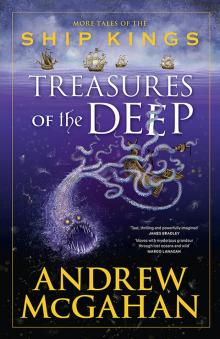 Treasures of the Deep
Treasures of the Deep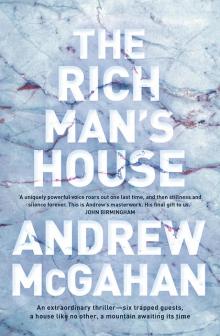 The Rich Man’s House
The Rich Man’s House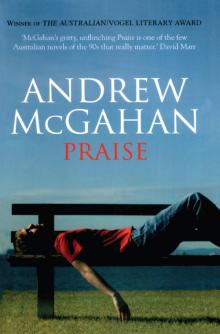 Praise
Praise The White Earth
The White Earth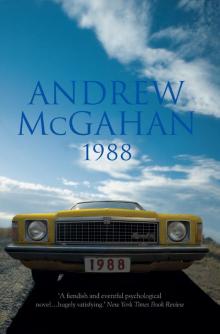 1988
1988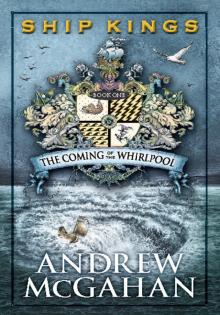 The Coming of the Whirlpool
The Coming of the Whirlpool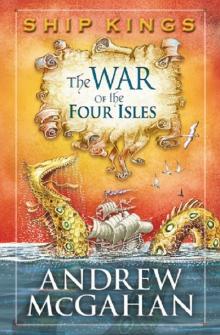 The War of the Four Isles
The War of the Four Isles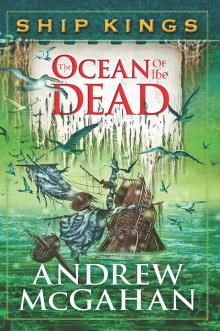 The Ocean of the Dead: Ship Kings 4
The Ocean of the Dead: Ship Kings 4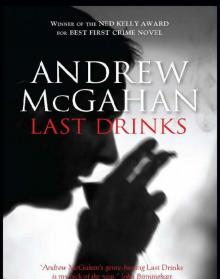 Last Drinks
Last Drinks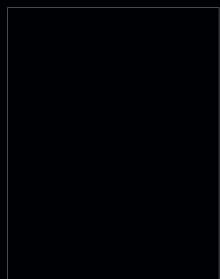 Wonders of a Godless World
Wonders of a Godless World Underground
Underground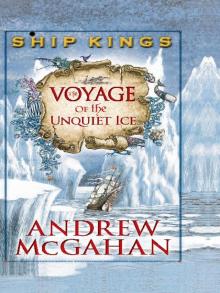 The Voyage of the Unquiet Ice
The Voyage of the Unquiet Ice